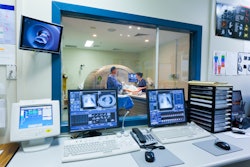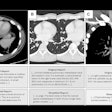Personal health information (PHI) -- images included -- can be easily accessed on the internet in PowerPoint files, according to a study published October 9 in Current Problems in Diagnostic Radiology.
The findings underscore the importance of protecting this information to prevent HIPAA violations -- and radiologists can play an important role in the effort, wrote a team led by David Stern of the University of Michigan in Ann Arbor.
"Radiologists are uniquely positioned to educate other healthcare providers on how to properly remove personal health information from radiologic imaging files," wrote Stern and colleague William Weadock, MD, also of the university.
PowerPoint presentations that include medical images are a valuable educational tool, Stern and Weadock noted. But if these images aren't anonymized, patient privacy can be violated – which can lead to legal consequences for healthcare systems and academic institutions, they wrote.
The investigators conducted a study that followed previous work Weadock published 15 years ago. The work included data from eight Google searches related to a medical imaging modality such as x-rays, CT scans, MRIs, PET scans, CT and MR angiography, and ultrasounds. The team assessed PowerPoint files that contained images for personal health information such as the patient's full name, medical registration number, date, and geographic indicator smaller than a state.
The researchers found the following:
- Google searches with "Magnetic Resonance Imaging filetype:ppt" and "Cardiac CT CAT Scan filetype:ppt found 146 search results; of these, 7.6% contained full PHI.
- A search for "Radiology Chest X-ray filetype:ppt" resulted in accessible PHI in 40% of the presentations with images. A search for "Post-Operative CT Scan filetype:ppt" resulted in accessible PHI in 29%.
- "Magnetic Resonance Imaging filetype:pptx" returned zero PHI results, while "Cardiac CT CAT scan filetype:pptx" found one result with partial PHI; "Radiology Chest X-ray filetype:pptx" identified four results with partial PHI and one with full PHI; and "Post-Operative CT scan filetype:pptx" found two presentations with partial PHI.
"While a declining percentage of PowerPoint files containing PHI is reassuring, this follow-up study demonstrated that PHI can still be easily accessed openly on the internet by anyone who has basic familiarity with Microsoft PowerPoint," Stern and Weadock wrote. "Work remains to continue to educate users on how to properly protect patient information in PowerPoint files."
The full study can be found here.



















